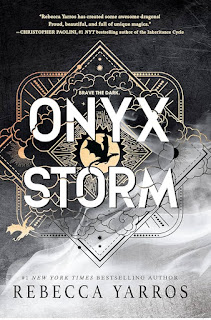CBR17Bingo: "Borrow" - because I borrowed it from the library.
Murder for the Modern Girl (2022) by Kendall Kulper is another book I picked up after it was recommended to me by someone in my local book club. I thought it was original and unique. It was a quick read and kept my interest. Although there are fantastical elements to a couple of the characters in this book, the story still felt grounded. In fact, the fantastical elements really made the characters more interesting, and they added something to the story.Ruby is 18 years old. We first see her when she is in disguise in a cheap bar, about to put poison in a man's drink. It is 1928 Chicago, and Ruby has a special talent. She can read minds. She's recently been using this talent to find men who are truly bad, but the system is too broken to find them and throw them in jail. And she kills them. Quite often, Ruby's act will save the life of another woman or women. Ruby justifies her actions because the justice system is a mess and often doesn't protect those in need.
Ruby is a fun character with a very progressive and modern take on life. She is very smart and independent, and she is very close with her father, who works for the city of Chicago. Ruby's father is in the midst of dealing with a couple different groups of gangsters.
Guy is a young man who works in a morgue. He can barely talk to people, he is easily overlooked and discounted. Although Guy spends his nights cleaning the morgue, he is also very smart and intuitive. He sees some of the bodies killed by Ruby and notices a trend. But even more interesting, Guy is in the morgue because he wants to befriend one of the doctors there. Guy is a shapeshifter. He can change his appearance at whim--although it is physically difficult. He is desperate for more information about his condition and hopes the doctor can help him.
Guy and Ruby are thrown together. Because she can see into minds, she can tell who Guy is no matter what persona he arrives in. They work well together. However, Guy is still looking for the killer--which is Ruby--and that puts a damper on their relationship. Throw in a lot of drama and violence from the fighting gangsters who don't want Ruby's father involved, and there is a lot going on in this book.
Like I wrote above, I did enjoy this book. Ruby is a fun, resourceful character who is loyal to those she loves, and thinks outside the box. The setting was fun, and Guy was a very sympathetic character. It was good seeing them together. My only complaint is that I was a little weirded out by how comfortable Ruby was with killing people. I know they were bad and "deserved" it, but an eighteen-year-old calmly ending life after life after life was disconcerting. She was a serial killer, and never had any qualms. It's easier to overlook multiple murders in a book, but I was imagining this lady out in the world today.



















